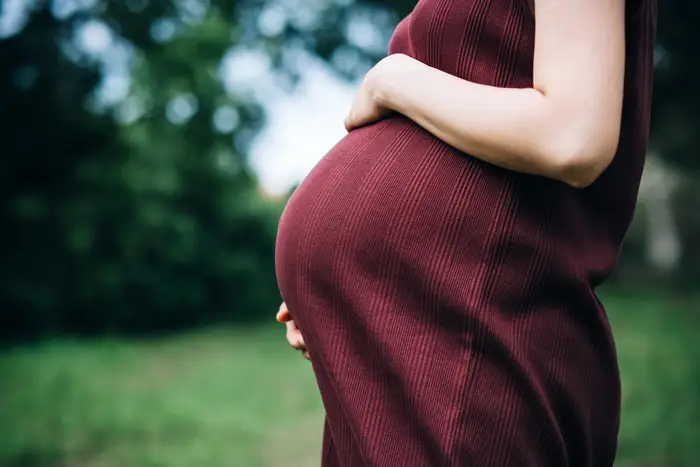“Earlier, caesareans were performed only for critical maternal reasons. Now, foetal indicators like low heartbeat, meconium passage, or breach position have added to the reasons. Also, many patients now demand C-sections due to fear of pain.”

On the occasion of Mother’s Day, Kaptan Mali, Editor, Mother & Baby Matters conducted a special interview with Dr. Sheetal Kasat, Senior Gynaecologist at Thane Civil Hospital, who has been serving in the government sector for over 29 years. With decades of experience and countless deliveries to her credit, Dr. Kasat shed light on the evolving challenges women face today in becoming and being a mother.
Excerpts From the Interview
Changing Times, New Challenges
Dr. Kasat began by acknowledging that motherhood is a significant and fulfilling milestone for most women, yet it’s becoming increasingly complicated. She attributes this to modern lifestyle changes, increasing career pressures, nuclear families, and lack of elder guidance—all of which make motherhood more difficult to achieve and sustain.
Medical Definition of a Mother
In medical terms, Dr. Kasat explains that there are three types of mothers:
- Biological Mother: A woman whose own egg is fertilized and leads to conception.
- Gestational Mother: A woman who carries a pregnancy in her womb, including surrogates.
- Legal Mother: A woman who becomes a mother through legal adoption or guardianship.
Ideal Age for Pregnancy
According to Dr. Kasat, the ideal age for a woman to become a mother is between 20 to 30 years, a period when she is physically and mentally mature. She warns that pregnancies after 30 years of age may come with increased risks such as high blood pressure, thyroid issues, and even fertility problems.
“Career goals and personal choices are valid,” she acknowledges, “but from a medical standpoint, earlier pregnancy is safer for both mother and child.”
The Rise in Caesarean Deliveries
Dr. Kasat notes a significant increase in C-sections today, driven by medical reasons as well as patient preference. In her own words:
“Earlier, caesareans were performed only for critical maternal reasons. Now, foetal indicators like low heartbeat, meconium passage, or breach position have added to the reasons. Also, many patients now demand C-sections due to fear of pain.”
She also points out that repeat C-sections are common. If a woman has had one C-section, doctors typically prefer the same route for future deliveries.
Risks of C-Section vs. Normal Delivery
While the baby usually doesn’t face complications from a C-section, the mother may encounter:

- Greater blood loss
- Risk of infection
- Longer hospital stays
- Extended recovery time (up to 6 weeks)
Normal delivery, on the other hand, allows quicker recovery and fewer long-term complications.
Miscarriages on the Rise
Dr. Kasat expressed concern over the increasing number of miscarriages, stating that 33 out of 100 pregnancies end in miscarriage or abortion. She attributes this rise to lifestyle factors, self-medication, and the easy availability of medical termination of pregnancy (MTP) kits, which are often used without proper medical guidance.

Preterm Births and Their Impact
Premature deliveries (before 37 weeks) are becoming more common due to multiple pregnancies, infections, and complications like placenta previa. These infants may face:
- Breathing difficulties
- Low birth weight
- Infections
- Long-term issues like learning disabilities
Dr. Kasat emphasized the importance of full-term pregnancies, rest, and proper treatment for underlying conditions like hypertension or diabetes to avoid such complications.
“If a baby is born prematurely, especially before 32 weeks or weighing less than 1.5 kg, they usually require NICU (Neonatal Intensive Care Unit) support. The average cost can be around Rs 50,000 to Rs 1,00,000 per week, depending on the hospital. The longer the stay, the higher the cost—sometimes running into lakhs of rupees.”
Economic and Educational Impact on Maternal Health
She stated that while financial status does affect maternal health due to diet, medical care, and living conditions, education plays an even more crucial role.
“You can be poor but still access free government vaccinations and care—if you’re informed. Knowledge is more important than money.”
Assisted Reproductive Techniques and IVF
In response to the rising trend of delayed pregnancies, Dr. Kasat discussed IVF (In Vitro Fertilisation) and egg freezing. She explained that women—especially career-oriented ones—now opt to freeze their eggs in their 20s for future use, especially if they are undergoing treatments like chemotherapy or simply want to delay motherhood.

The success rate of IVF, she added, varies by age:
- 40–45% for women under 35
- 35–40% for women above 35
- Steep decline after 40
Though IVF is safe and not physically painful, the emotional toll is significant, especially if multiple cycles fail.
Nutrition and Exercise During Pregnancy
Dr. Kasat recommends a balanced Indian diet, rich in:

- Green leafy vegetables
- Lentils and pulses (for vegetarians)
- Soy protein
- Eggs and lean meats (for non-vegetarians)
She stresses the importance of high-protein diets and warns against junk and fast food, which contributes to complications like PCOD (Polycystic Ovarian Disease).
When asked about women who engage in strenuous activities like cycling or marathons during pregnancy, Dr. Kasat advised them to consult their treating gynaecologist first.
Myths vs. Facts
Some common pregnancy myths were addressed:
- Raw papaya: Avoid during pregnancy as it contains enzymes that may stimulate the uterus.
- Superstitions around eclipses: While medically baseless, she suggests not dismissing family beliefs if it causes stress, as stress itself can be harmful during pregnancy.
Pregnancy and Chronic Conditions
For women with hypertension, the risk includes:
- Intrauterine Growth Retardation (IUGR)
- Premature delivery
- Long-term development issues in the baby
For diabetic mothers:
- Higher risk of large babies
- Risk of C-section
- Baby’s sugar levels can crash after birth
In the long term, children of such mothers may have a higher risk of developing these conditions in adulthood (typically after age 30–40), though not immediately after birth.
Final Advice to Expecting Mothers
Dr. Kasat concluded with strong guidance for women:
“Plan your pregnancy between 20–30 years. Aim for normal delivery, avoid unnecessary medical interventions, and take proper rest and nutrition. Trust your doctor—not myths. A healthy mother means a healthy generation.”
English YouTube Link https://youtu.be/uAtBdYwVLdY?si=OfjGqVhBjDGa99Xz
Hindi YouTube Link https://www.youtube.com/watch?v=rlfaX1-5Qvg





